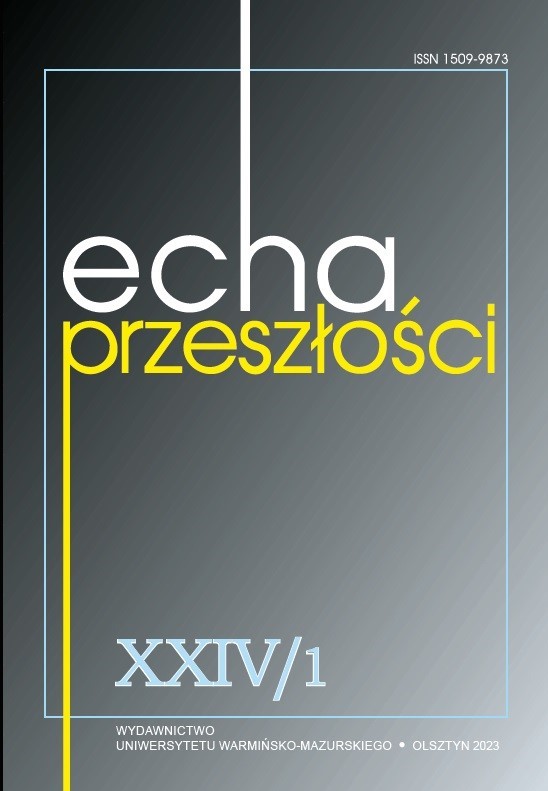Polityka zagraniczna II Rzeczypospolitej wobec Związku Sowieckiego w latach 1926–1933
w świetle dokumentów Archiwum Akt Nowych
Foreign policy of the Second Polish Republic towards the Soviet Union in the years 1926–1933 in the light of the documents of the Central Archive of Modern Records
Author(s): Dariusz RadziwiłłowiczSubject(s): Diplomatic history, Interwar Period (1920 - 1939), History of Communism
Published by: Wydawnictwo Uniwersytetu Warmińsko-Mazurskiego w Olsztynie
Keywords: foreign policy; Second Polish Republic; Soviet Union; Central Archive of Modern Records;
Summary/Abstract: Poland’s foreign policy in the years 1926–1933 has always been of interest to Polish histo- rians, journalists and politicians. While Poland’s internal issues in the interwar period have already been relatively uniformly and objectively reconstructed and evaluated, the foreign policy of the pre-September governments remains a topic of numerous debates and polemics. Already during the World War II, attempts were made to analyze some of the issues of Polish foreign policy of the interwar period. The politicians of the national camp criticized Marshal Józef Piłsudski’s rule, whereas his adherents (the “San- ation”) defended Polish policy of the interwar period.In communist Poland, only selected directions in foreign policy were explored in scientific literature due to restrictions on the freedom of speech, and none of the published works covered the entire realm of Polish diplomacy. The only exception were synthetic monographs describing the entire history of Poland, where Polish foreign policy was addressed in more or less detail. The works of Henryk Batowski, char- acterized by rich factography and synthetic form, are among the few monographs published at the end of communist rule in Poland. They were, however, written in a period when the freedom of publication was restricted.The collapse of the communist system in 1989 opened the door for unfettered research and the publica- tion of research findings. Due to length constraints, the author of this article had to focus on the studies that contributed most to this publication. For instance, the works of W. Materski, a renowned expert on eastern issues, provide valuable information on Polish-Soviet relations.The article discusses the period between the coup d’état carried out in Poland by Piłsudski on 12 May 1926 and the signing of the Polish-German declaration of non-aggression between Poland and Germany on 26 January 1934. The May Coup did not bring any change in Polish foreign policy, but it took place during a period of important changes in the balance of power in Europe, when the security system created by the Treaty of Versailles and the first alliances of the post-war years began to erode. On the other hand, the Polish-German declaration of non-aggression was a turning point in Polish foreign policy, marking a further cooling of Polish-French relations and a departure from the policy of rapprochement with the Soviet Union.
Journal: Echa Przeszłości
- Issue Year: XXIV/2023
- Issue No: 1
- Page Range: 171-197
- Page Count: 28
- Language: Polish

